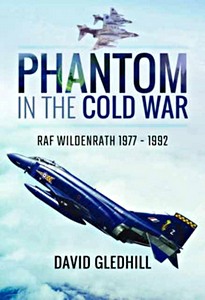Gray Ghosts : U.S.Navy and Marine Corps F-4 Phantoms
This study of the sea-going Phantoms includes contributions from over a hundred aircrew and maintainers who were involved in the Phantom's success from the earliest service development flying to its twilight years in the Reserve units.
There are personal accounts of MiG battles from more than a dozen MiG killers, first-hand descriptions of the F-4's introduction into combat with the Marines as a CAS and reconnaissance aircraft, memories of 'Bear' intercepts on Mediterranean cruises, narratives covering the aircraft's service into the 1980s, and much more.
These voices are blended with a detailed technical and developmental description of the aircraft, supported by comprehensive appendices and over 450 photos in color and black and white.
Product details
| Author: | Peter E. Davies |
|---|---|
| Details: | 192 pages, 11.2 x 8.9 x 1.1 in (28.5 x 22.5 x 2.8 cm), hardback |
| Illustrations: | 450+ b&w and color photos |
| Language: | English |
| Publisher: | Schiffer Publishing Ltd (USA, 2004) |
| ISBN: | 9780764310218 |

Gray Ghosts : U.S.Navy and Marine Corps F-4 Phantoms
Language: English
View price, availability, and reviews on Amazon
View on Amazon.comView on Amazon UK
View on Amazon CA





